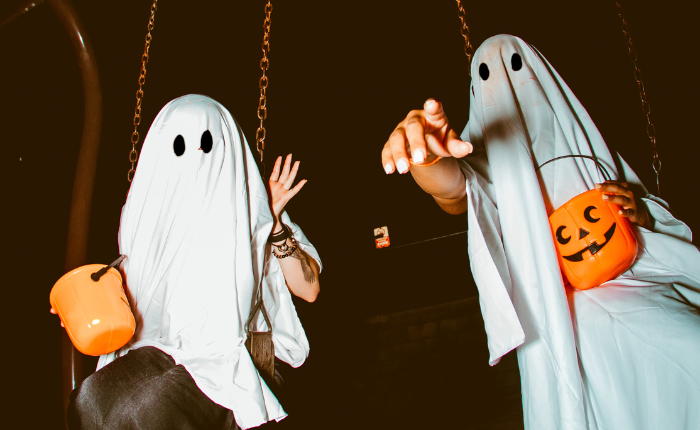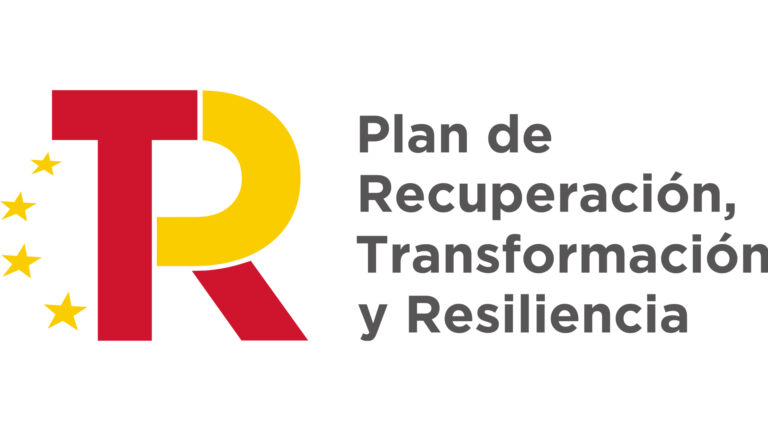Do you know these Spanish Halloween expressions?
Halloween is getting closer, an increasingly popular tradition in different corners of the world. Its name comes from ‘All Hallow’s Eve’, a celebration which would come to be the eve of the Día de los Muertos (Day of the Dead). Although November 1 is when we visit our deceased loved ones, it’s said that the day before, their spirits return to visit their families. This is why people associate the holiday with spooky symbols such as ghosts, skeletons and bats. Also, it’s cinema and pop culture which have made us associate monsters and iconic horror characters with this holiday.
Today we’re sharing Spanish expressions related to Halloween that native Spanish speakers use all year round. Whilst they may sound scary, their meaning is fun and entirely different from what is being said literally. Let’s begin, shall we?

- Estar curado de espanto (to be over it): this expression includes the verb ‘curar’ which means to cure/treat. ‘Estar curado de espanto’ means that someone has already been scared or shocked so many times in their life, by the many things they have seen, that nothing surprises them anymore, in other words, they are cured. This phrase can be used when seeing things that are incredible or out of the ordinary, but that no longer spark emotion. For example: ¡Mira, son las 11 de la noche y los niños españoles siguen jugando en la calle! – Bah, pero es normal, yo he vivido en España y ya estoy curado de espanto (Look at those Spanish kids playing outside at 11 at night! – Eh, that’s totally normal, I have lived in Spanish and I am ‘curado de espanto’).
- Ser una tumba (to not say a word): if you are a tumba (‘grave’), it means that you are a person who really knows how to keep a secret and won’t share it with anyone else. For example: Cuéntame todo con confianza, no te preocupes, yo soy una tumba (you can tell me everything in confidence, don’t worry, I won’t say a word). Someone can also ‘llevarse el secreto a la tumba’ (to take a secret to the grave) if they died and never revealed what they knew. For example: nunca dijo quién era el padre de su hijo, se llevó el secreto a la tumba (She died and never said who the father of her son was).
- Estar en los huesos (to be skin and bone): When someone looks very thin, it’s an exaggeration to say that they are en los huesos or “skin and bone”. For example: Pablo, tienes que comer algo, ¡estás en los huesos! (Pablo, you have to eat something, you’re skin and bone).
- Andar como zombie (to walk like a zombie): thanks to horror films and scary stories, we all know that zombies are characterised by slowly walking around and groaning. If you feel tired or simply haven’t had a good night’s sleep, then you will end up waking up and walking like a zombie. For example: me he pasado la noche sin dormir por estudiar para el examen, ahora ando como zombie (I didn’t sleep last night as I was studying for the exam so now I’m walking around like a zombie).
- Costar un ojo de la cara (to cost an arm and a leg): When something is too expensive, instead of saying that something costs an arm and a leg, in Spanish you can say that it costs ‘an eye’ – and half of the other eye if you want to continue exaggerating. For example: ¡Por fin me he comprado el iPhone! Pero me ha costado un ojo de la cara… (I’ve finally got the latest iPhone! But it cost me an arm and a leg).
- Morirse de (miedo, risa, hambre, etc) (fear, laughter, hunger, etc.): in Spanish you can die of many things in a figurative sense to exaggerate the emotion you are feeling. For example: ese chiste fue muy bueno, nos morimos de la risa. No he comido nada en todo el día, me estoy muriendo de hambre (that joke was really good, we were dying of laughter. I haven’t eaten anything all day, I’m starving).
- Poner la piel de gallina (to get goosebumps): chicken skin looks similar to when you get goosebumps which is why in Spanish you can say that you have la piel de gallina. For example: esa película de terror me dio mucho miedo, se me puso la piel de gallina (that horror movie scared me so much, I got goosebumps.
- ¿Qué clase brujería es esta? (what kind of sorcery/witchcraft is this?): This expression is used in Latin America when something happens that you can’t explain. Your TV suddenly turns off, your car won’t start, or there are strange lights in the sky. For example: La sopa me quedó de un color rojo y no le puse nada distinto. ¿Qué clase de brujería es esta? (The soup turned out red and I didn’t add anything different. What kind of sorcery is this?).
- Calabaza calabaza, cada uno para su casa (to get going): This expression is very famous in Chile, but also in other Latin American countries. It’s an informal Spanish expression related to Halloween, used between friends or family when an event is over. Many times it’s not even necessary to say it in full. For example: ya bebimos todo, ahora ¿qué hacemos? Yo considero que calabaza calabaza (la persona ya sabe que el final de su oración es ‘cada uno para su casa’) (we already drank everything, now what do we do? I think it’s time that we get going!)

If you liked these Spanish expressions related to Halloween, why not try using them in your daily life? It makes communication more natural and at the same time, you make others laugh, since it’s difficult for a person who doesn’t speak Spanish as their mother tongue to know them. So if you are a Spanish learner, surprise your Spanish-speaking friends with these phrases. Why not give them a go? ¡No te mueras de vergüenza! 😜
PS: you can download an infographic with all these Spanish Halloween expressions here.

Martina Dioletta
Traducido de la versión española escita por María José San Martín.



